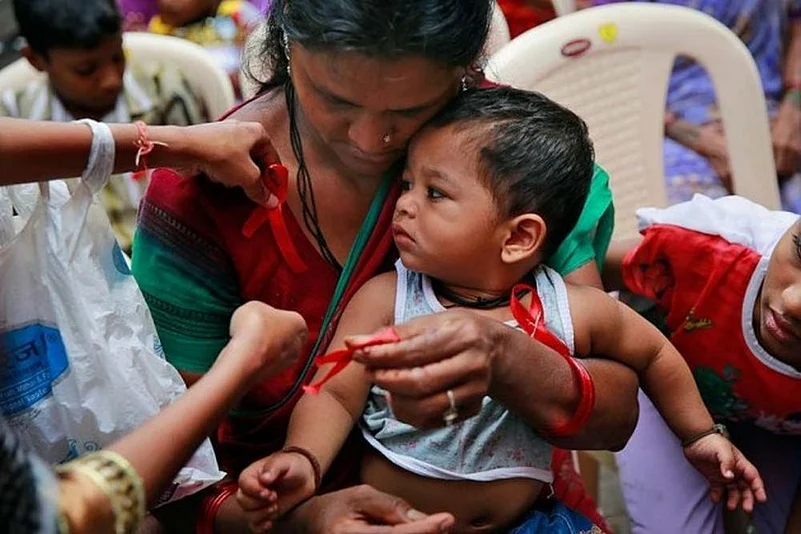The Ministry of Health has announced implementation of the Human Immunodeficiency Virus (HIV) and Acquired Immune Deficiency Syndrome (AIDS) Act through a gazette notification issued on Monday.
The Act is a crucial piece of legislation that can be instrumental in ensuring equal rights to persons affected by HIV and AIDS in getting treatment, admission in educational institutions and jobs.
India, is a signatory to the Declaration of Commitment on Human Immunodeficiency Virus and Acquired Immune Deficiency Syndrome (2001)
The Declaration aims to address the problems of Human Immunodeficiency Virus and Acquired Immune Deficiency Syndrome in all its aspects and to secure a global commitment to enhancing coordination and intensification of national, regional and international efforts to combat it in a comprehensive manner.
Advertisement
The Act is a step to give effect to the Declaration with intention to “protect and secure the human rights of persons who are HIV-positive, affected by Human Immunodeficiency Virus and Acquired Immune Deficiency Syndrome and vulnerable to the said virus and syndrome”
The Act has 14 chapters dealing with different aspects in detail, for the protection and empowerment of HIV-positive persons.
The chapters deal with topics of a diverse range, from safe working environment, prohibition of discrimination and appointment of an ombudsman, to strategies for reduction of risk and special provisions such as: right of residence, living wills for guardianship and testamentary guardianship.
Advertisement
Here are some salient features of the Act:
According to the provisions of the Act, no HIV test, medical treatment or research will be conducted on a person without his informed consent and no person shall be compelled to disclose his HIV status for obtaining employment or services, except with his informed consent, and if required by a court order.
The legislation has provisions to safeguard the property rights of HIV positive people, adding that every HIV infected or affected person below the age of 18 years has the right to reside in a shared household and enjoy the facilities of the household.
The act also prohibits any individual from publishing information or advocating feelings of hatred against HIV positive persons and those living with them.
The act seeks to prevent and control the spread of HIV and AIDS and creates mechanisms for redressing the complaints of persons infected with HIV and AIDS.
Violation of the act by publishing information about people living with HIV (PLHIV) or advocating hatred against them would attract imprisonment ranging from three months to two years or a maximum fine of Rs one lakh or both.
As per the Act, Union and state governments shall take measures to prevent the spread of HIV or AIDS, provide anti-retroviral therapy and infection management for persons with HIV or AIDS, facilitate their access to welfare schemes especially for women and children, among others.
Advertisement
The government will also issue necessary guidelines with respect to protocols for HIV and AIDS related diagnostic facilities. Anti-retroviral therapy and opportunistic infection management will also be applicable to all persons.
(with inpurts from agencies)




















